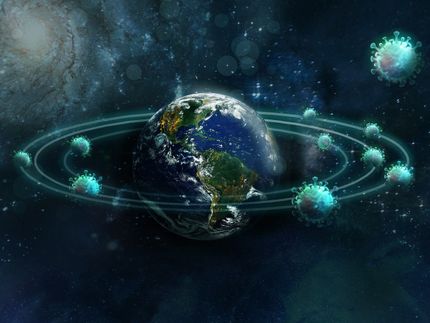German chemical industry: More robust and more competitive
Long-term growth potential of 3 percent - Emission trading system (ETS) as major problem
Advertisement
Over the last few years the chemical industry in Germany has worked for and achieved clear advantages in global competition, so the German chemical industry association (VCI) in a press conference in Frankfurt. Since the start of the upswing in 2003, annual growth in the German chemical industry averaged over 4 percent and was thus much more dynamic than in the chemical industries of the USA, Japan or other EU Member States - where the annual growth rate averaged only 2.6 percent in the period from 2003 to 2007.
Professor Dr Ulrich Lehner, President of VCI: "The current figures clearly show that the German chemical industry has become more robust than it was in the past in comparably difficult conditions." In the last years, many German chemical companies optimized their processes, structures and in-house methods in such a way that production costs at their sites fell significantly, resulting in much higher earning power. Against this backdrop, Lehner sees the German chemical industry as well-prepared for further growth, also in the long run: "Today we are in a clearly better position than back in the nineties. Therefore, we think that we can increase the production in the German chemical industry by annually 3 percent on average, up to the year 2020. But we need adequate political framework conditions to be able to do so. It is imperative to continue and to further develop the reform policy of the federal government."
According to VCI, the export business is one of the strong points of the German chemical industry - with a current export share of around 75 percent. Central and Eastern Europe have considerably gained in importance as sales markets of German chemical companies. The German chemical industry obviously benefits from the proximity to the new EU Member States and from their rapidly rising demand for chemical products. In 2007 exports to Central and Eastern Europe were worth over 16 billion euros andalready accounted for over 12 percent of total chemical exports from Germany.
But the VCI President notes that innovative products remain the most important factor for lasting success on world markets. For this reason, companies strongly increased their research budgets. This holds true especially for the pharma sector. Over the past 10 years, the research spending of the chemical-pharmaceutical industry in Germany rose by well over 2.5 billion euros to 9.5 billion euros most recently.
At present, VCI President Lehner sees the plans of the EU Commission for an emission trading system as the major threat to the long-term growth scenario of 3 percent up to 2020. Lehner: "The chemical industry will be faced withimmense costs. As early as in 2013, the financial burden for German companies alone will amount to over 1 billion euros - and by 2020 this burden will rise to almost 2 billion euros annually."
Here, the VCI President makes quite clear that the chemical industry is a key to successful climate protection. Already now a wide range of products contribute to more efficient uses of energy in chemical plants, in other industries and by consumers - avoiding greenhouse gases. VCI President Lehner emphasizes: "Throughout their useful life, many of these products clearly save more energy than had been needed for their production." Therefore, it is incomprehensible why the European Commission wants to put such a heavy burden on the chemical industry, creating obvious cost advantages for competitors in Asia and in the USA and causing consequences. Lehner: "Production in Germany and in Europe will become less profitable, and investments will be made in other parts of the world. Therefore, we urge the political decision-makers not to put an excessive strain on industry where ETS is concerned."






























































